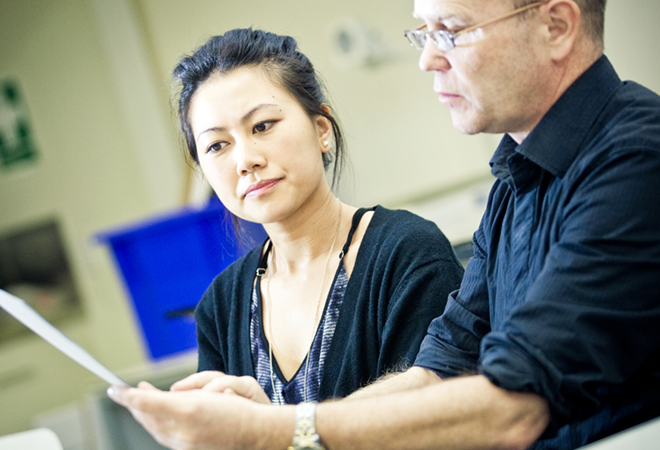
Tutors and Learners: Partners in Innovation
Status
Completed: 6 June 2009
Project Details
A project completed in 2009, undertaken by National Association of ESOL Home Tutors (now English Language Partners NZ), to develop a good practice guide on the Association of ESOL Home Tutor Schemes’ programme of innovation pilots to investigate ways of improving services to learners.
Aims:
The main aims of the project were to:
- identify improved ways of gathering learner feedback
- explore improved ways of measuring learner progress.
Methodology:
The project methodology involved:
- including innovative research into current teaching services and involving Association members at all levels in the research
- Association schemes choosing a research topic: improved ways of gathering meaningful learner feedback or improved ways of measuring learner progress
- devising an innovative project to explore, create, develop or critique current practice, working with their own learners and local knowledge.
Team

Dorothy Thwaite
National Association of ESOL Home TutorsStatus
Funding
$4,500.00 (excl GST)
Key Findings
The key findings from the project, which relating to making a difference to learners, included:
- The most significant difference is the increase in strength of the learners’ voices. The pilots were successful in providing ways for learners to overcome cultural barriers to giving feedback and to overcome cultural barriers to effective self-assessment. Projects also removed some of the language barriers (for example by using translated survey forms).
- Projects provided safe ways for learners to critique the services provided by ESOL Home Tutors (for example by using surveyors from the learner’s own community).
- Some of the projects gave a voice, not only to learners registered with ESOL Home Tutors, but to their families and to members of communities. Inclusion is a powerful promoter of social settlement, integration and independence. Learners were able to participate in the mainstream activity of evaluating a service and to follow through the results.
- In some projects a teaching unit was developed on evaluation. Learners had the opportunity to engage with the concept of giving feedback New Zealand-style with examples and discussion before completing the survey on satisfaction. This made an enormous difference to the learners, who used their new knowledge to give detailed and robust feedback.
- Comments from learners and tutors bore out the assertion that learners who can see and accept their progress have increased motivation and receptivity to continue learning, as do their tutors. Gains were most commonly expressed in terms of increased independence and/or confidence in carrying out everyday tasks – the sorts of tasks which an adult can normally do without thinking.
- The fact that this was a team effort between teachers and learners (and managers and families) was of enormous importance to many learners. It is not easy to contribute when the environment and language are different and invitations to participate as a ‘normal’ adult are few and far between.
Key Recommendations
The key recommendations from the project and the key factors for success included:
Shared decision making | Shared decision making in the development phase (more than just ‘consultation’) which engaged members at all levels.
Practical and relevant topics | Practical topics central to good teaching and learning.
Carefully staged roll out | Carefully staged presentation of the roll out so that the opportunity to participate was accessible, achievable, inclusive, had a sensible time frame and was well resourced
Close link between the innovation projects and teaching | The close link between the innovation projects and the day-to-day business of providing tuition. This promoted the notion of classroom research as an interesting and normal part of teaching.
Balance between support and autonomy | A balance between guidelines and support at national level and autonomy at local level. This required a good knowledge of (and some research into) our collective strengths and weaknesses, plus tactful support.
Flexibility about reporting | Flexibility about the reporting requirements for progress reports. In most cases the tutors built on their practical experience rather than academic knowledge, and paperwork was at a minimum.
The system could be used by other tertiary organisations | The system for initiating, monitoring, and rolling out these pilots could be used or adapted, by other tertiary organisations with multiple teaching staff/programmes/sites.
A research report prepared by Dorothy Thwaite.
(PDF, 1.87 MB, 4-pages).
- 6 June 2009